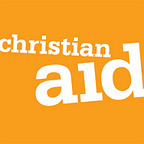‘We started to really listen’: the power of radio
World Radio Day: the impact of climate forecasting in Ethiopia through the BRACED programme
To celebrate World Radio Day, we are highlighting how pastoralists in Ethiopia are harnessing the power of radio.
These agricultural communities have their own indigenous means of climate forecasting based on observations of various climatic factors like wind direction and studying the behaviour of wild animals.
However, the traditional forecasts failed to predict drought in 2015.
This lead to a devastating loss of animal life and livelihood. Communities also paid no attention to official radio broadcasts warnings.
The BRACED programme has helped build the confidence of communities in the climate information being shared over the radio and made it more accessible and relevant to them.
Making climate information useful
Fatuma Kusheni, is a fifty-year-old mother of seven who lives in the Yabelo district of Borena Zone in Ethiopia.
She is a member of a radio listening group set up under the Christian Aid led BRACED programme.
Under the programme, women come together to listen to weather forecasts and make livelihood decisions based on the climate information they receive.
Working with local FM stations and in partnership with BBC Media Action, the programme produces and disseminates climate information to communities that are living in high risk areas vulnerable to climate extremes.
Information is also shared at the community level in local languages.
Like Fatuma, many women in this group were sceptical about the use of climate information before BRACED began.
However, today Fatuma and the members of her radio listening group have much more confidence in the climate information shared over the radio.
By the end of the programme, 26% of this group were accessing it to prepare for extreme weather events.
We didn’t take any action based on the advice from the radio during this last drought. It was after the drought that we started to really listen and heed its advice.
Combining data and stories
We are using the data from the BRACED project, and stories like Fatuma’s, in our new digital story-telling platform DataStories.
Typically, data and stories are set apart, but at Christian Aid we want to tell the whole story.
Through DataStories, we aim to capture stories through words, photographs, film… and data.
We combine key data on the changes our projects are making in people’s lives, with compelling personal stories.
Through interactive data dashboards and charts, people can explore the change our projects have had in people’s lives. DataStories is a way of pulling together the numbers and narratives to become mutually reinforcing.
Christian Aid invites you to delve into DataStories, get under the skin of our projects, crunch the numbers, and meet the incredible people in the communities where we work.
Find out more about DataStories here.
